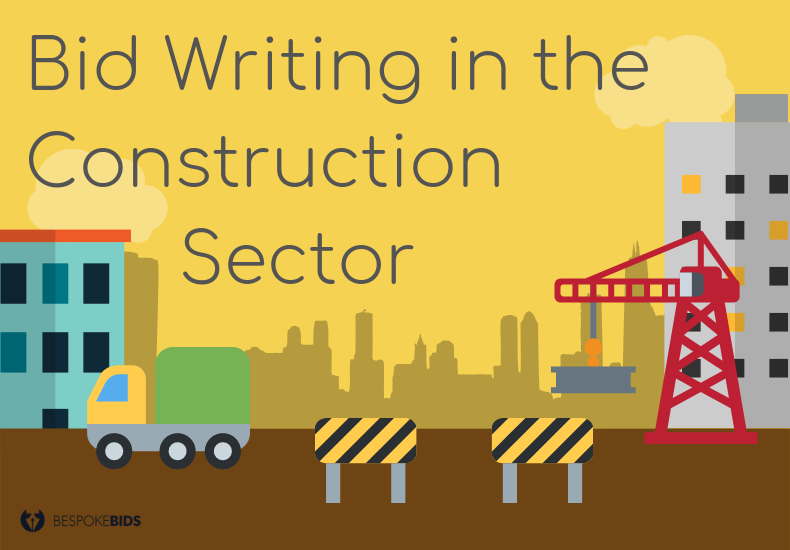
Generally speaking, bid writing isn’t too dissimilar across the different industries as there are several question types which are broadly universal. In some specialist industries however, this generalisation is not quite so simple.
This blog continues our series looking at bid writing across different industries and sectors. From care to catering, we are looking at the key questions, skills and knowledge you should be aware of before embarking on your next bid project.
In this blog we will look specifically at bid writing in the construction industry.
PAS 91
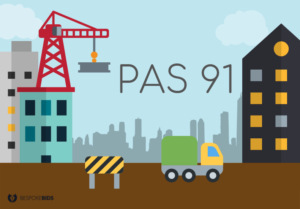
One of the most important features of construction tenders is the PAS 91.
PAS 91 (Publicly Available Specification) is a standardised pre-qualification document developed specifically for the construction industry. It is a Government-commissioned questionnaire which constitutes a “recommended common minimum standard for construction procurement” according to Constructionline.
It is similar in function to the Standard Selection Questionnaire although requires a far greater level of detail and professional standing in order for applicants to be successful.
Such is the importance and prominence of PAS 91, that we wrote a much more detailed blog about it here.
BIM
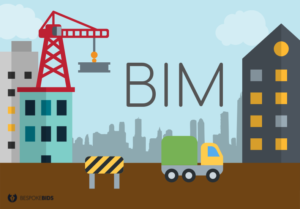
Building Information Modelling (BIM) has become increasingly prevalent within the construction sector in recent years. It is even referenced in it’s own section within the PAS 91.
BIM refers generally to methods of digitally representing the planning, design, construction and management of buildings and infrastructure. BIM incorporates a wide range of software tools and standards which are designed to help architects, engineers and construction workers to collaborate more efficiently and effectively.
In June 2011 the UK government announced its intention to require “collaborative 3D BIM” on all its projects by 2016. The construction industry more generally has also seen a rapid increase in advocacy and use of BIM. This push has been led – particularly in the private sector – by the UK BIM Alliance, formed to champion and enable the universal implementation of BIM Level 2 by 2020.
A lot of construction companies, especially SMEs, haven’t had much to do with BIM. However, with the push from government and the industry as a whole, it is very much worth your time to learn up on it and, if at all possible, begin some form of implementation.
JCT
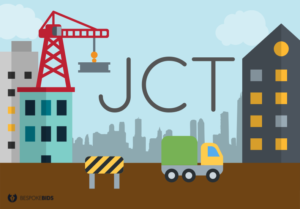
The Joint Contracts Tribunal (JCT), produces standard forms of contract for the construction industry. These standard forms also include guidance notes and other standard documentation for use in construction projects within the United Kingdom.
It’s important from a tendering standpoint at least, that you are aware of the JCT and their documentation. Most construction tenders will be formed around these standard documents and you may have to agree to abide by them.
By no means do you need to go away and purchase the documents, but a functional understanding of their general workings will be very useful.
Health and Safety

Naturally, health and safety is always a big issue in construction procurement. It therefore stands to reason that you will most likely be asked about your procedures and policies in this regard. You may need to consider and detail your:
- Relevant Staff Members
- General Procedures for Risk Assessments and Method Statements
- Risk Registers
- Training / Toolbox Talks
- PPE and Safety Equipment
- Accreditations (eg. SafeContractor / CHAS)
Accreditations and Memberships
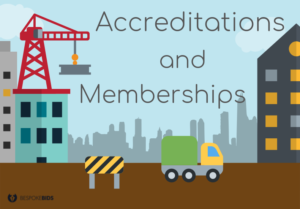
With the level of responsibility which is intrinsic to delivering safe and successful construction projects, holding relevant memberships and accreditations is extremely important.
Accreditations and Memberships to look for include:
- Constructionline (Bronze / Silver / Gold / Platinum)
- SafeContractor
- Considerate Constructors
- SSIP accreditations (Including CHAS)
- ISOs (9001 / 14001 / 18001)
Social Value
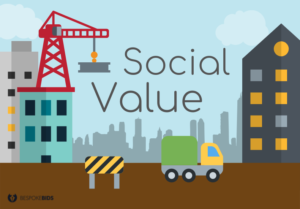
Especially in the public sector and even more so with local government, social value or CSR (corporate social responsibility) is becoming increasingly important.
The ways in which you support local social, environmental and economic issues can often constitute 20% of your total score so it’s extremely important to ensure you’re doing enough.
Some of the more obvious initiatives you can run include:
- Local employment
- Running apprenticeship schemes
- Using local suppliers
- Sponsoring local events / teams / organisations
Some less obvious, or more onerous initiatives include:
- Ensuring safe and fair practices are observed throughout your supply chain
- Managing your waste conscientiously
- Minimising environmental impact
Conclusions
Generally speaking, construction procurement is not too dissimilar from other industries. In the places where it differs however, the contrast tends to be much greater. It’s important to be aware of these differences and above all, to know how you will approach tenders with these in mind.
Did you enjoy this post?
Check out one of our latest blogs on being ready for tendering.
Follow Bespoke Bids on Linkedin to keep up with our day-to-day operations. We post live tenders, tips and tricks and more.


